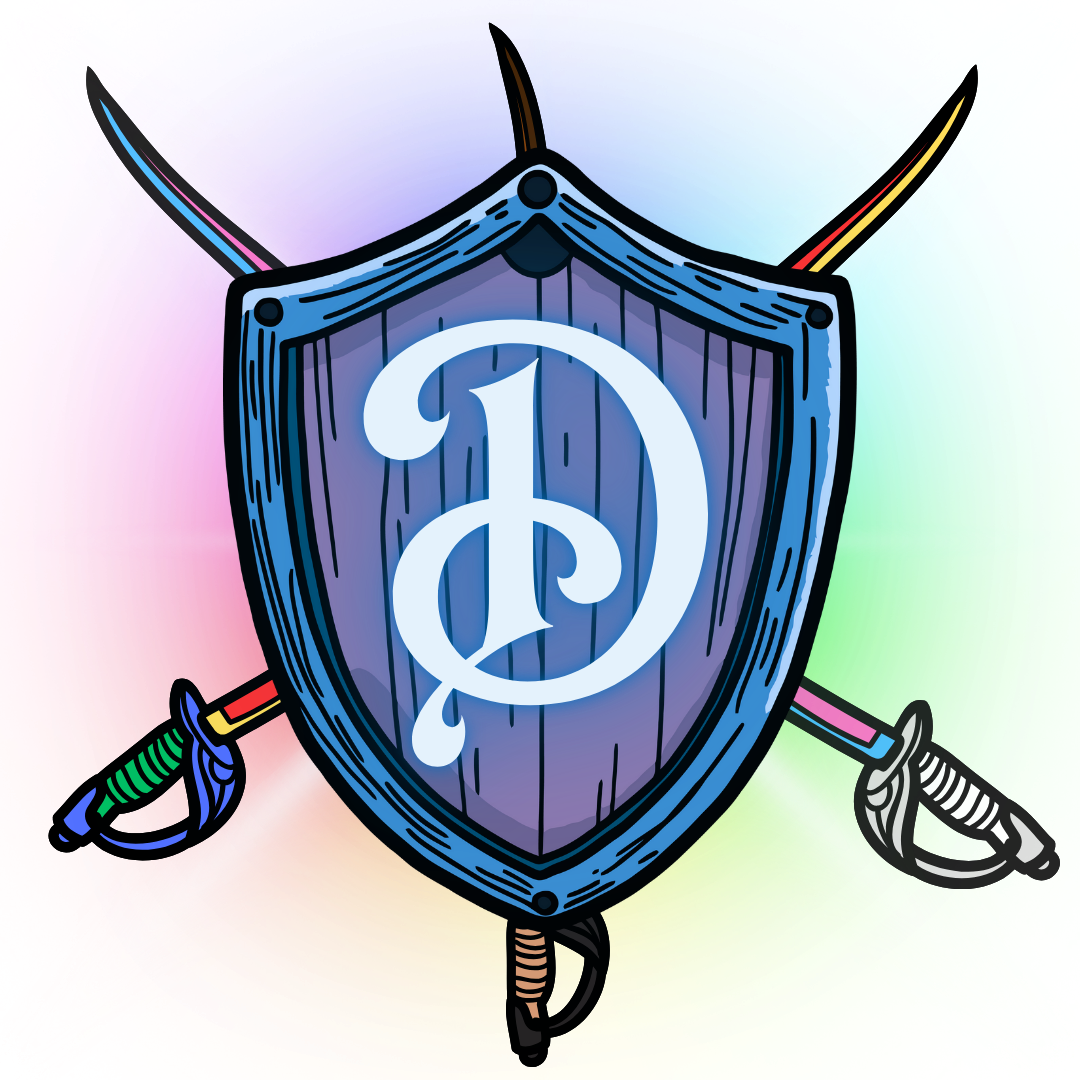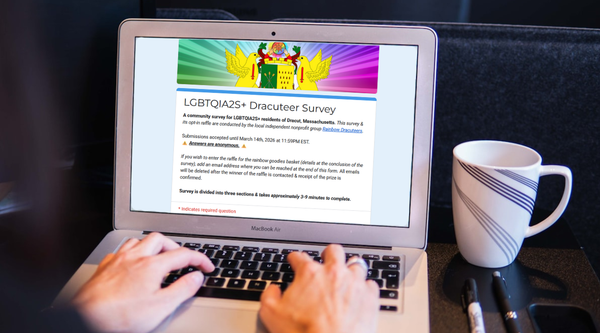The Right to Read & the Threat to Intellectual Freedom
Banning books hurts ~E-V-E-R-Y-O-N-E~

With abundant glee, I shout: "BOOKS ARE GREAT!"
Now, as a writer, nerd, & librarian, I'm an expected enthusiast of the written word. (Evangelical in my love of literature, even!) But that doesn't counter the veracity of my gleeful shout. Books are an incredible, historied vehicle for stories, ideas, and education. Libraries are the stewards of the living history of books, working to make it accessible to everyone.
And it's not just physical books that are great. E-books, audiobooks, comics, zines, local newspapers—all of these are wonderful things! The wordly art of writing (and visual art in hybrid forms like comics/graphic novels/manga) is beautiful, sometimes profound, and always important.
In 2025 America, however, books are under threat.
Intellectual freedom is the right of every individual to read freely, seek information, and speak aloud as guaranteed by the First Amendment. The heart of libraries beats to this freedom, and its core supports the very foundation of democracy. No one can tell you what or how to think; you reserve the right to learn for yourself, seeking out knowledge & resources of your own volition. But the freedom to read, a right built upon the U.S. Constitution, is in jeopardy.
We believe that free communication is essential to the preservation of a free society and a creative culture. We believe that these pressures toward conformity present the danger of limiting the range and variety of inquiry and expression on which our democracy and our culture depend. We believe that every American community must jealously guard the freedom to publish and to circulate, in order to preserve its own freedom to read. We believe that publishers and librarians have a profound responsibility to give validity to that freedom to read by making it possible for the readers to choose freely from a variety of offerings.
The freedom to read is guaranteed by the Constitution. Those with faith in free people will stand firm on these constitutional guarantees of essential rights and will exercise the responsibilities that accompany these rights.
—This excerpt comes from the May 1953 statement issued by the Westchester Conference of the American Library Association and the American Book Publishers Council, which in 1970 consolidated with the American Educational Publishers Institute to become the Association of American Publishers. Read in full HERE. (Emphasis added in quote is my own.)
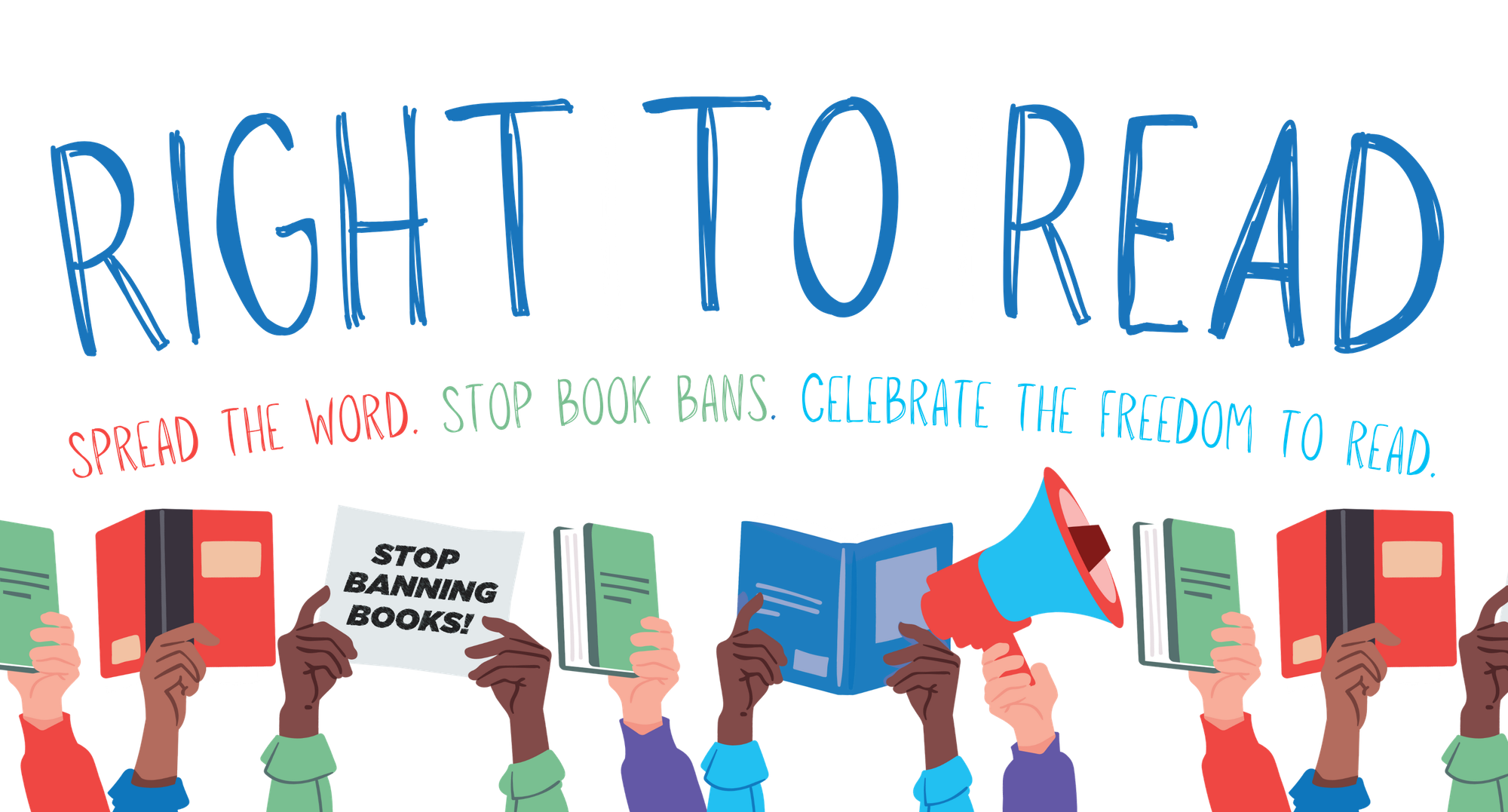
Anti-intellectualism, fear-mongering, & discrimination lead as the foundational trifecta of the current proliferation of book challenges & book bans. Most often, the majority of challenges aren't from concerned parents or community members, but highly organized groups that support censorship over constitutional freedoms.
State Representative John Moran of Boston noted a majority of the challenges librarians across the country dealt with last year alone originate not from parents or library users, but far larger networks.
“In fact, parents only accounted for 16 percent of the demands for censoring books, and only 5 percent of the challenges were brought by library users. So, where's it coming from?” He posited. “Well-funded, national pressure groups and government entities that include elected officials, board members and administrators do the bulk of the work. The 120 titles that [were] most frequently targeted for censorship during 2024 are all identified on partisan book rating sites, which provide tools for activists to demand the censorship of library books.”
—WAMC Northeast Public Radio, "Mass. bills aimed at protecting librarians, preventing book bans get hearing" by James Paleologopoulos
The Commonwealth of Massachusetts is currently considering a "Right to Read" law to protect our libraries & schools from these mass-coordinated attacks on intellectual freedom. The books most often challenged are those that discuss or depict the lives of marginalized folks, particularly LGBTQIA+ (lesbian, gay, bisexual, transgender, queer/questioning, intersex, asexual) people & BIPOC (Black/Indigenous/People of color) communities.
Friday, June 27th of this year saw a new erosion to the freedom to read & public school education: the Mahmoud v. Taylor case, in a 6-3 decision along political lines, judged that parents have the right to opt-out of school lessons that contain LGBTQ-inclusive children's books. The majority ruled that the First Amendment protected those parents' religious freedoms—and of those guaranteed freedoms, removing their kids from inclusive educational lessons is one.
“Religious liberty is essential. But hiding LGBTQ+ people is not free exercise of religion. It is oppression. School is where children learn how to disagree respectfully and to get along with people unlike themselves. Opt-outs teach children to separate themselves, to fear and reject those they disagree with. Opt-outs stigmatize LGBTQ+ children. I hope parents OPT OUT of opt-outs, so their children learn kindness and are prepared to engage with a diverse world. Justice Thomas suggested that schools ‘cabin’ LGBTQ+ representation into separate units to make opt-outs easier. But the Supreme Court already decided: SEPARATE IS NOT EQUAL."
—Charlotte Sullivan Wild, author of children's book Love, Violet (emboldened text is my own emphasis)

This dubious ruling adds but another log to the bonfire of anti-LGBT+ sentiment that roars in this country today. The consistent, unyielding attempt to erase trans & queer people both past and present continues. And to such a constant attack, we must provide not only a constant defense, but a counterattack as well.
For those upholding the Right to Read and Intellectual Freedom, that means supporting public libraries, public schools, & independent bookstores.
It means challenging the book challenges, fighting the censors, and being just as LOUD with your love as those who are loud with their hate.
The Supreme Court ruling rides on the anti-intellectual coattails of President Trump's March 14th Executive Order to defund the Institute of Museums & Library Services (IMLS) as part of the current administration's so-called attempt at efficiency and fiscal responsibility, despite the fact that IMLS—the only federal agency that supports museums and libraries across the entire country—comprises approximately 0.005% of the overall federal budget. (That's a five thousandth of the budget! Or, to put it another way, it would take funding 200 distinct Institutes of Museums & Library Services to take up just 1% of the federal budget.) Considering just how many libraries & communities IMLS served with such an infinitesimal slice of the budget, those wanting more efficiency should take note! 📝
A direct consequence of this loss of federal funding came at the beginning of July: countless libraries lost access to a number of e-resources, databases, career services, and educational tools. The Dracut Public library, as part of the Merrimack Valley Library Consortium, was not immune.
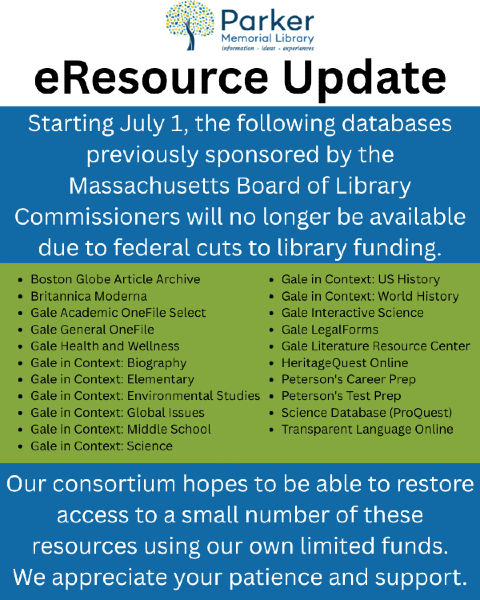
For rural libraries & their communities, the cuts will be far more devastating. The effects will be felt most acutely by our vulnerable siblings & neighbors as safe places of learning and social life dwindle, left either emaciated or dead.
All of this is concurrent with the country's ongoing literacy crisis.
The following statistics are from the National Literacy Institute with data gathered from 2022-2023, and occasionally updated with 2024 information:
- Illiteracy has become such a serious problem in our country that 130 million adults are now unable to read a simple story to their children
- 21% of adults in the US are illiterate in 2024
- 54% of adults have a literacy below 6th grade level
- 45 million are functionally illiterate and read below a 5th grade level
- 44% of the American adults do not read a book in a year
- 20% of Americans read below the level needed to earn a living wage
- 50% of the unemployed between the ages of 16 and 21 cannot read well enough to be considered functionally literate
- Illiteracy costs American taxpayers an estimated $20 billion each year
- To determine how many prison beds will be needed in future years, some states actually base part of their projection on how well current elementary students are performing on reading tests
- 85% of juvenile offenders have problems reading
- Approximately 50% of Americans read so poorly that they are unable to perform simple tasks such as reading prescription drug labels
- Approximately 40% of students across the nation cannot read at a basic level.
- Almost 70% of low-income fourth grade students cannot read at a basic level.
- Struggling readers suffer socially and emotionally. The student's family feels the emotions and social effects.
At a time when literacy rates continue to fall, teacher shortages only grow, and caregivers struggle to read alongside their children, how does one justify defunding public libraries, one of the major supporters of childhood literacy & adult learning? How does one believe opting-out of reading certain books will help develop comprehensive reading skills, empathy, and understanding? How will stripping books from school shelves promote critical thinking and active listening?
Uh-oh, I feel that creeping sense of despair coming on. Y'know the one, you also exist on this timeline!
Okay, okay, let's take a moment to breathe...in, and out...in, and out...
The path forward is not hopeless. There are many, many people out there defending the Right to Read & Intellectual Freedom. Though times may be bleak, there is ever hope—just as I've learned by reading countless books, fiction and nonfiction alike.
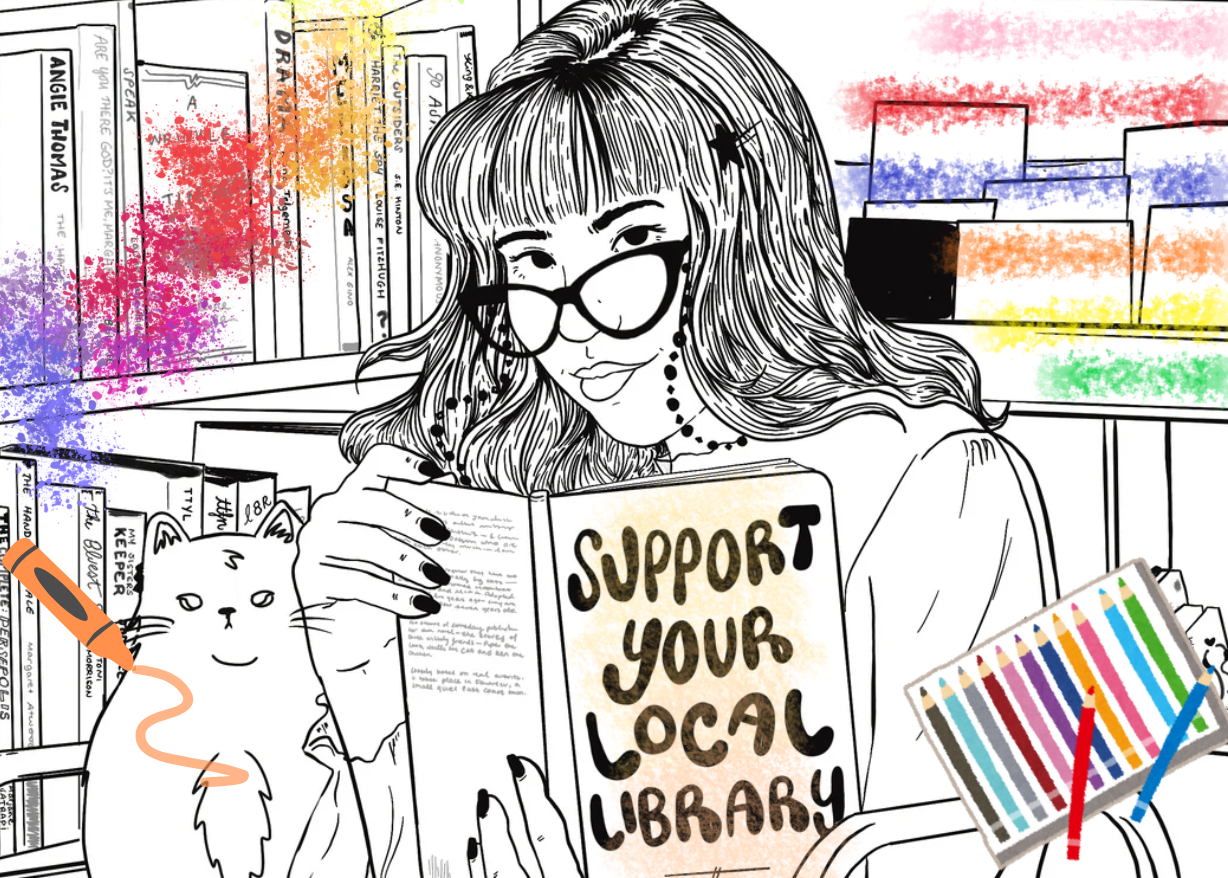
For those aged 13-26 living in the United States, you are eligible for a Books Unbanned card that will give you access to a whole library of e-books, audiobooks, and digital resources. The Books Unbanned initiative has partnered with several libraries across the country, including the Boston Public Library, to help young folks in all sorts of situations gain equitable access to information, diverse stories, and educational materials.






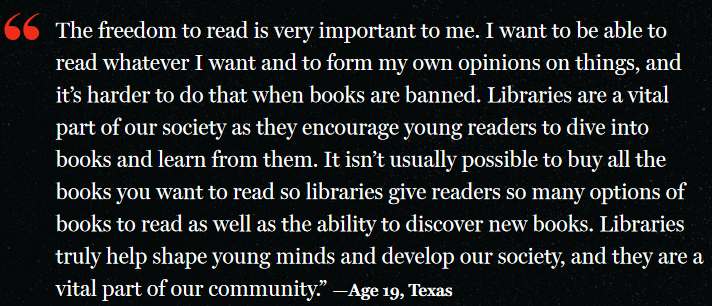
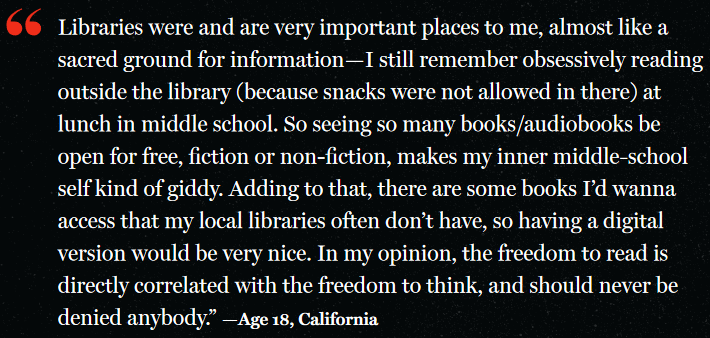

Youth Voices on Books Unbanned, an organization fighting for intellectual freedom and fighting against censorship
For any Massachusetts-based resident, employee, full-time student, or property owner, you're eligible to apply for an e-card with the Boston Public Library.
At the Dracut public library, children of the Merrimack Valley between the ages of 5 and 16 can get their own library card with parent/guardian permission. For a list of eligibility requirements to get your own card, click HERE. An e-card which can be used throughout the Merrimack Valley Library Consortium is also available alongside the MVLC app.
Almost any library card can be used with the Libby app to access a multitude of e-books and audiobooks. Depending on your home library, there are other electronic resources you can take advantage of from any location.
You can Show Up #ForOurLibraries by checking out the page link below from the American Library Association which outlines ways to reach out to U.S. representatives to demand support for our precious institutions, libraries and museums alike.
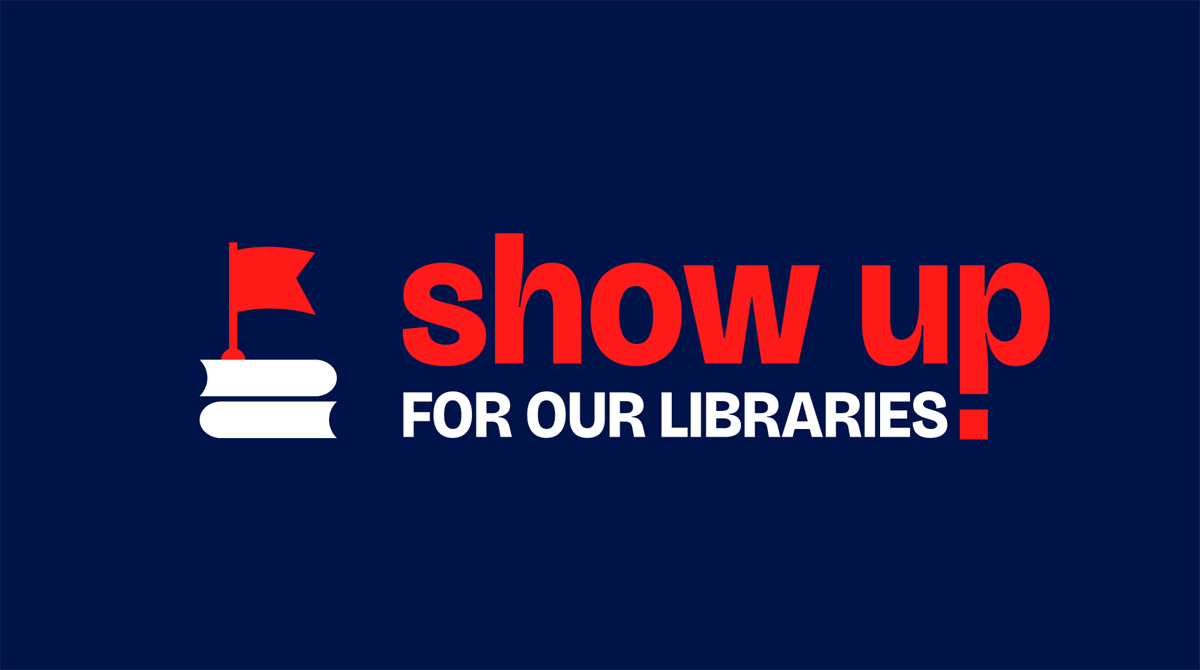
Support nonprofits like We Need Diverse Books who defend intellectual freedom, support queer youth, and serve diverse authors. "We Need Diverse Books is a 501(c)(3) nonprofit that takes a holistic approach in improving literacy and building compassion by affecting change across the entire reading pipeline — turning diverse manuscripts into published books and then donating diverse titles to readers nationwide."
A special online National Day of Action event this weekend is Read Out Loud, a 24-hour Zoom extravaganza where folks will be reading LGBTQ+ kids' books in protest of the SCOTUS ruling in Mahmoud v. Taylor. It begins Saturday, August 2nd @ 8PM EST and will run until Sunday, August 3rd @ 8PM EST. (I myself will be reading George Takei's powerful children's picture book, My Lost Freedom, at 9:45PM tomorrow, which also coincides with my birthday!)
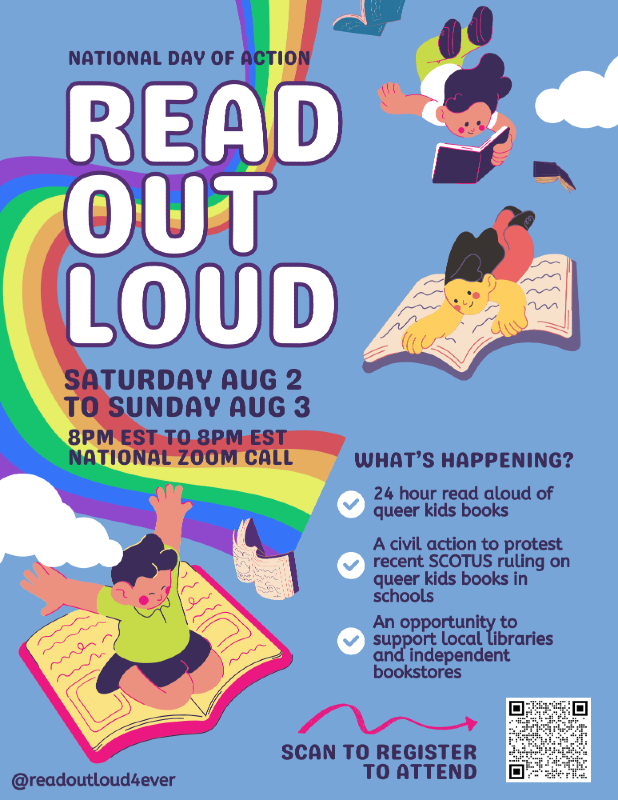
Kids deserve to see themselves & their families in the stories they're told or the books they read. This will always include LGBTQ+ people, both queer parents and kids. The only thing gained from shunning inclusive books is the seed of fear, distrust, and hate. Books teach us so very many things in this wide, diverse world of ours. Children should be able to learn about those different from them; we all share one planet, after all!
And for those children who are themselves different, it can be a truly transformative experience to see characters like yourself or your family in stories. Validation, kindness, and understanding blossom in a classroom, library, or home that has all kinds of books—and no one should be able to take away our right to read.
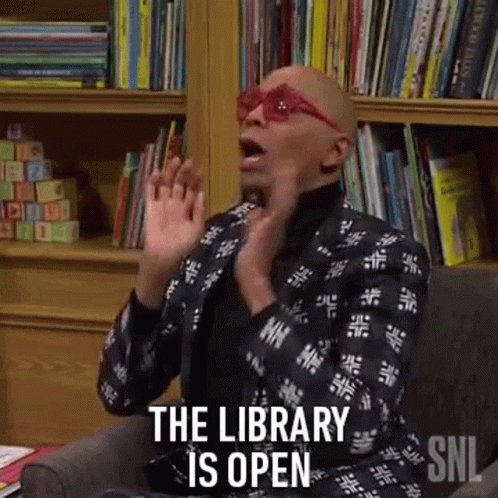
Disclaimer: I work as a part-time Reference librarian at the Parker Memorial Library. All words written here are my own and solely represent my personal perspectives & research. I do not speak in any official capacity for the town library or the municipality of Dracut.
